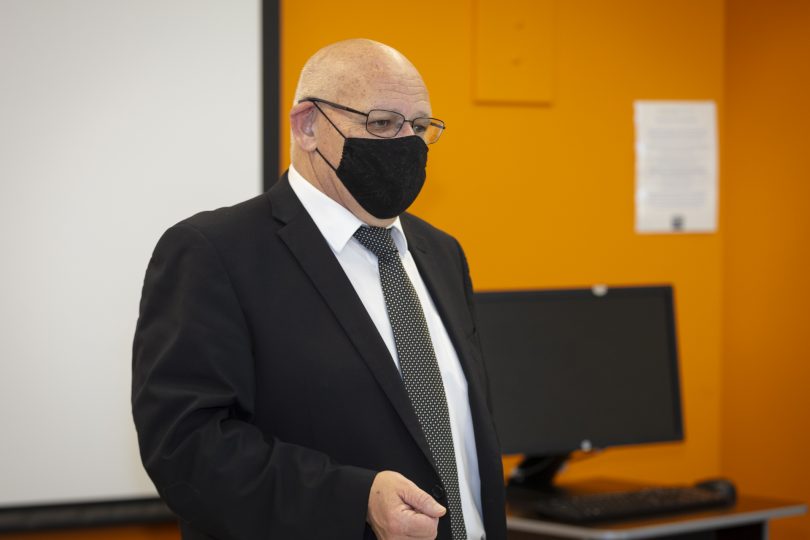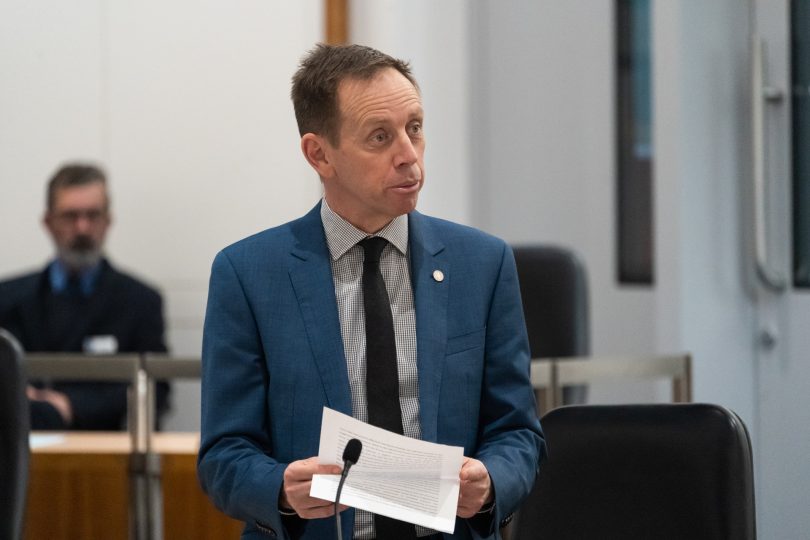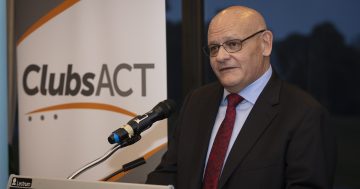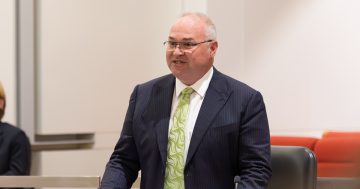
ClubsACT CEO Craig Shannon said clubs can serve as venues for intervention for people with gambling problems. Photo: Thomas Lucraft.
A proposal to tighten the rules for betting on poker machines has drawn ire from Canberra’s clubs, many of which are already struggling after two years of the pandemic.
Those community clubs say they already contribute to gambling harm-minimisation efforts.
Reforms proposed by the ACT Government would introduce a central monitoring system to link all poker machines in the ACT and cap the maximum individual bet at $5 and maximum credit at $100.
The system would cost somewhere between $11 million and $18 million, and while it’s not yet known who will foot the bill, it’s likely the government would assist with some upfront costs and the clubs would then pay ongoing fees.
Attorney-General Shane Rattenbury last week acknowledged that while the clubs don’t want to undertake these reforms, he said he was committed to a real consultation process.

Attorney-General Shane Rattenbury said he is committed to consultation with the clubs. Photo: Region Media.
ClubsACT CEO Craig Shannon welcomed Mr Rattenbury’s commitment to consultation, but he questioned the timing.
“After the last two years with COVID-19 and other things, our industry is not in a position to absorb extra costs in regards to these sorts of proposals,” he said.
“We’re about to go through a rebuilding period … including rebuilding the employment workforce.”
The policy position to lower caps on bets and credit limits was included in the 2020 Labor-Greens Parliamentary and Governing Agreement, so it hasn’t come as a shock to the clubs.
However, Mr Shannon said he believed the response was out-of-proportion considering the harm-minimisation work already underway in the ACT and he wasn’t aware of a major problem the policy was going to fix.
“We would hope this would be one of the last times our industry would have to deal with poker machines and harm-minimisation in the over-emphasised way,” Mr Shannon said, noting that “other technological change” in the gambling marketplace wasn’t getting the same attention, pointing to the rise of online gambling and betting apps as particular concerns.
“There are a range of non-poker machine gaming activities outside of the club culture that … require greater attention. The point we have made to government is that our clubs are pathways for intervention for people with gambling issues because they are in a facility overseen by individuals who can provide them with pathways,” he said.
“If we get rid of that completely, we put people out onto the streets and into their homes and there are no eyes and assistance models for them.”
Mr Shannon also noted some revenue raised from poker machines already goes back into the community and some towards gambling harm minimisation activities, including through community contributions and gambling-harm levies.
“There are opportunities there for the government to look at how they use the funds that are already being extracted from the industry,” he said.

ACTCOSS CEO Dr Emma Campbell welcomed the proposed reforms. Photo: Thomas Lucraft.
But ACT Council of Social Service CEO Dr Emma Campbell called the government’s proposals “welcome initiatives”.
“The social and financial costs of gambling continue to severely impact ACT individuals, families and the wider community. The ACT Government must do more to protect Canberrans from gambling harm,” Dr Campbell said.
She acknowledged community clubs are an important and well-loved part of Canberra but noted that reducing the risk of gambling harm would help them become safer, more inclusive and welcoming for all.
Dr Campbell looked forward to seeing more community clubs engage in the poker machine surrender initiative and some even becoming poker machine-free.
However, Mr Shannon said it would be “delusional” to suggest the club industry could exist without poker machine revenue entirely.
“Our industry is looking at every option that is viable for them to diversify into,” he said.
“But basically, by the time this cycle finishes where the government in this term achieves its aim … we’re getting pretty close to the bottom line there as far as the viability of reducing them goes.”
The ACT Government has set a target of 3500 poker machines across the Territory by 2025. There are around 3700 right now.



















